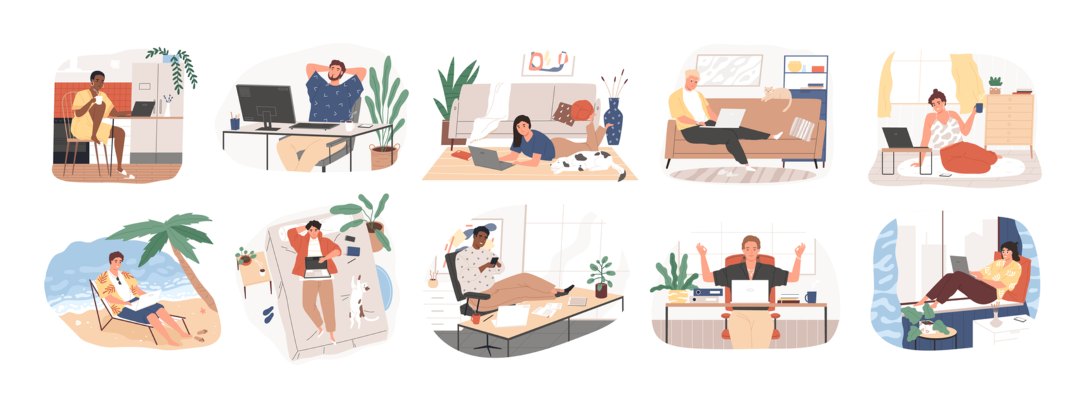Amidst the ongoing COVID-19 pandemic, the face of telecommuting has completely morphed, allowing more people to work from home, and allowing businesses to more realistically bring aboard new fully remote employees. If your business is one among thousands of companies implementing new remote work positions and policies into practice, it’s important to be aware of the exponential differences in the job hunt for remote workers versus in-person employees.
Going remote can do everything from saving your business valuable money to opening up a whole new pool of talent from anywhere in the world. Rather than rush into this new exciting world of remote possibilities, take the time to understand what exactly you should be looking for when hiring a remote employee. Using this guide, we’ll walk you through the ins and outs of what you need to look for in a remote employee to set your business up for success.
1. Independence
If there’s one quality that reigns above all other characteristics to look for, it’s independence. Working virtually with someone is a lot different than working with them face to face. Without that immediate, physical relationship, the employer/employee rapport must be fostered via online communication. In most remote work cases, constant communication and management aren’t necessary as a good remote worker should have a solid ability to create, innovate, and work independently.
 2. Availability
2. Availability
The more experienced and decorated the freelancer, the more likely they are to be booked up. In the event that you’re looking for a temporary hire to turn a project idea into an impressive final deliverable, you’ll need to land the help of someone whose work speaks for itself and someone whose schedule meshes well with your projected timeline.
Ultimately, you need to find out if the candidate you’re interested in has enough availability to do the job and complete it by your preferred deadline. The best way to confirm your schedules’ compatibility is by simply asking. Be sure to have availability questions readied during the early stages of the application and interview process.
3. Willingness to learn
Oftentimes, freelancer workers come with their own set of preferred ways of doing things. In the case that their work operations conflict with your asks, you want to make sure that the prospective candidate expresses a willingness to learn. Adaptability is essential in the business world, and if you have your business visions set on growth, that willingness to evolve and experiment should exist within the spirits of all of your employees—remote or not.
A good remote worker is flexible, eager, and more than willing to learn new methods of doing things. Whether that means coming up with new dataset formulas or experimenting with new graphic design programs, a good remote worker looks forward to a new challenge. Do your best to gauge that during your interview by asking thoughtful questions.
4. Communication skills
Communication is a fundamental element in any modern workplace. While it may take a myriad of different forms outside of traditional face-to-face meetings, communication is key. Because you’ll likely never have in-person interactions with a remote employee, it’s important to hammer out the details of how you’ll maintain lines of communication throughout the workweek. Be sure to ask potential candidates how they prefer to communicate and how they have communicated with previous employers in the past.
5. Previous work
Like any hiring screening, you’ll want to have a well-rounded understanding of your candidate’s previous work. Not only will past work give you more insight into their style and quality of deliverables, but it will also give you a basis for additional interview questions. No need to Google “how to get a background check” when you’ve got all the information you need right in front of you. While looking through resumes, certifications, testimonials, and portfolios, ask yourself these questions:
- How does the work before you compare to the work you’re expecting?
- What do you like about the work?
- What do you dislike about the work?
- Does the candidate demonstrate a diversified range of abilities?
- How much experience does the freelancer demonstrate?
There’s no denying it, hiring can be a nerve-wracking experience, especially when your sole goal is to fill your open position with someone more than capable of going above and beyond. Using these 5 tips, you’ll know exactly what to look for to set your business up for success.



